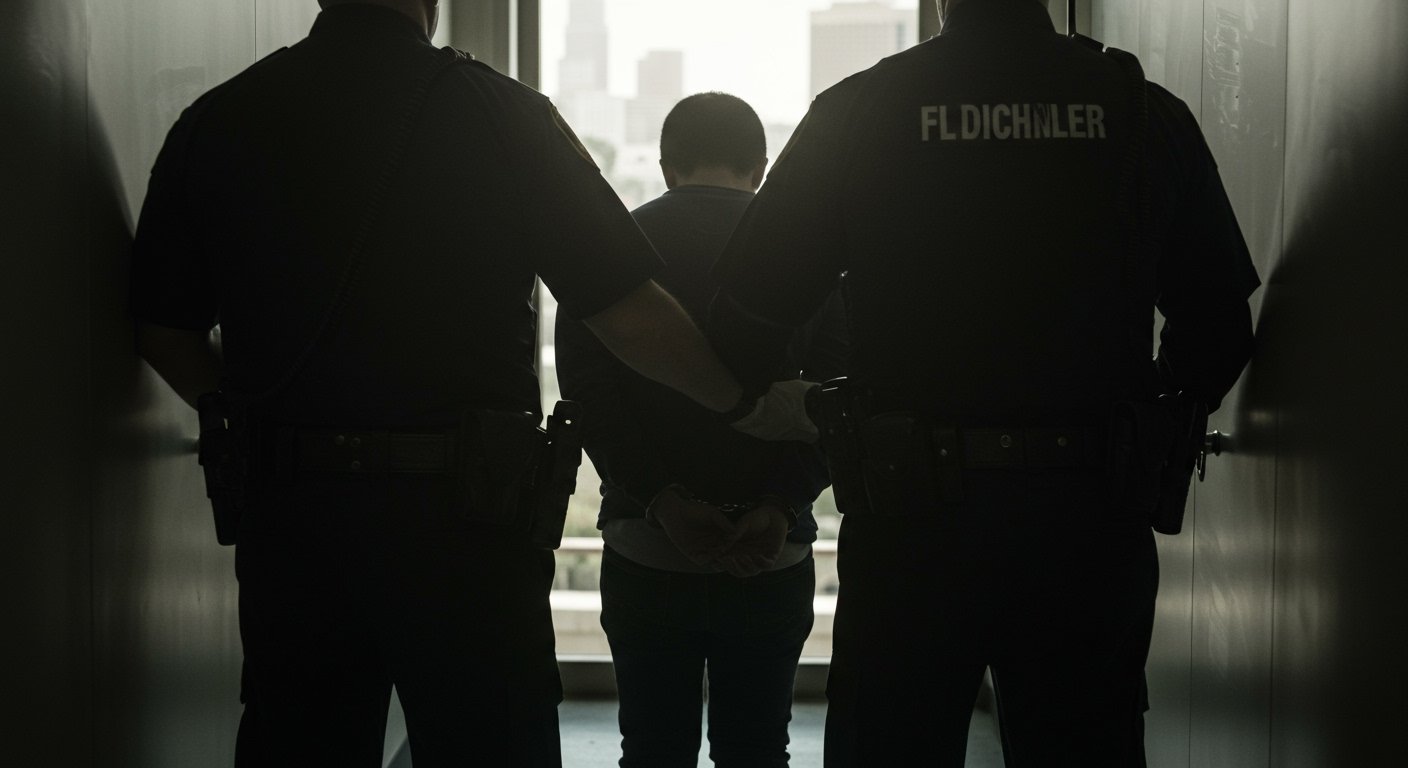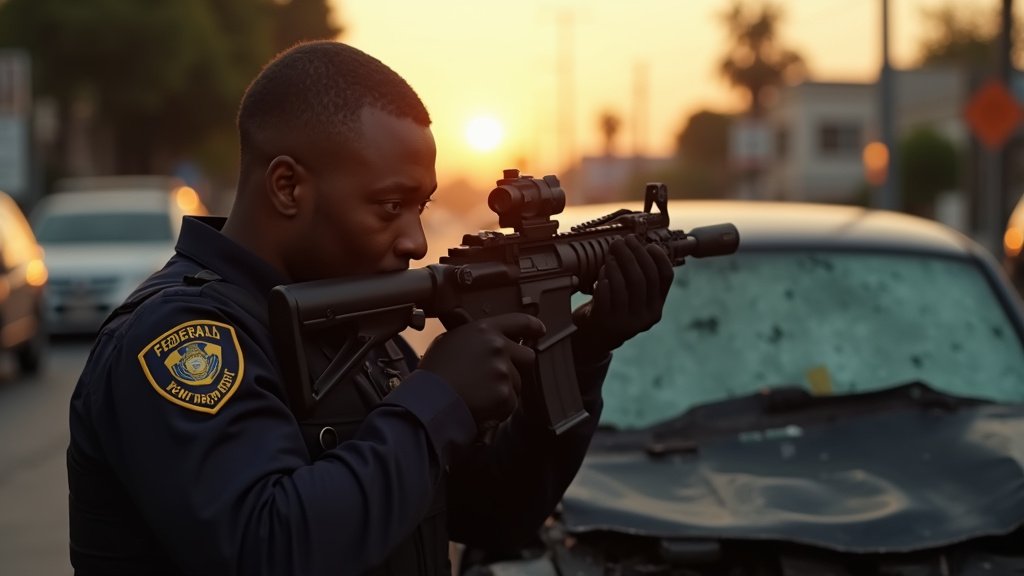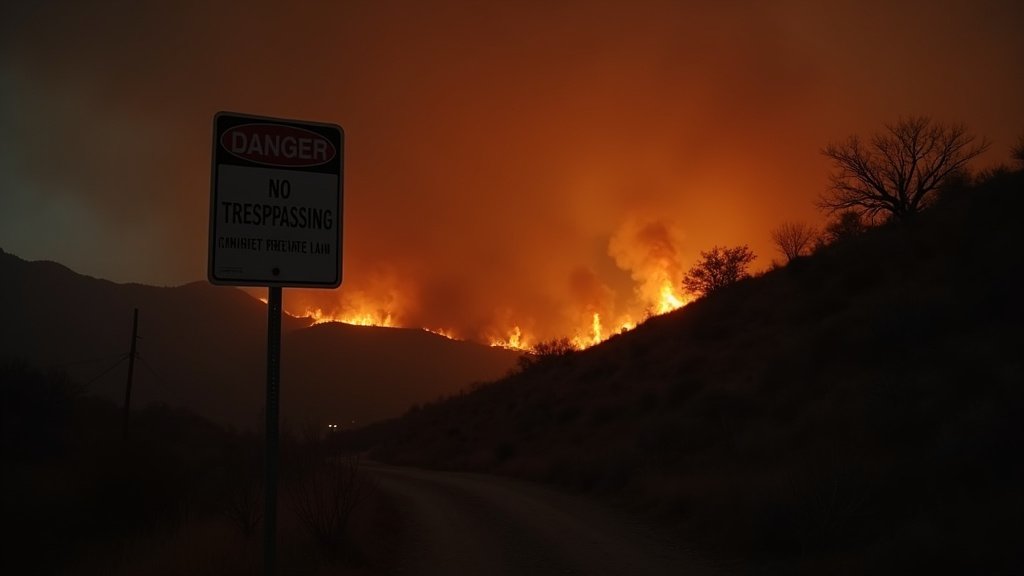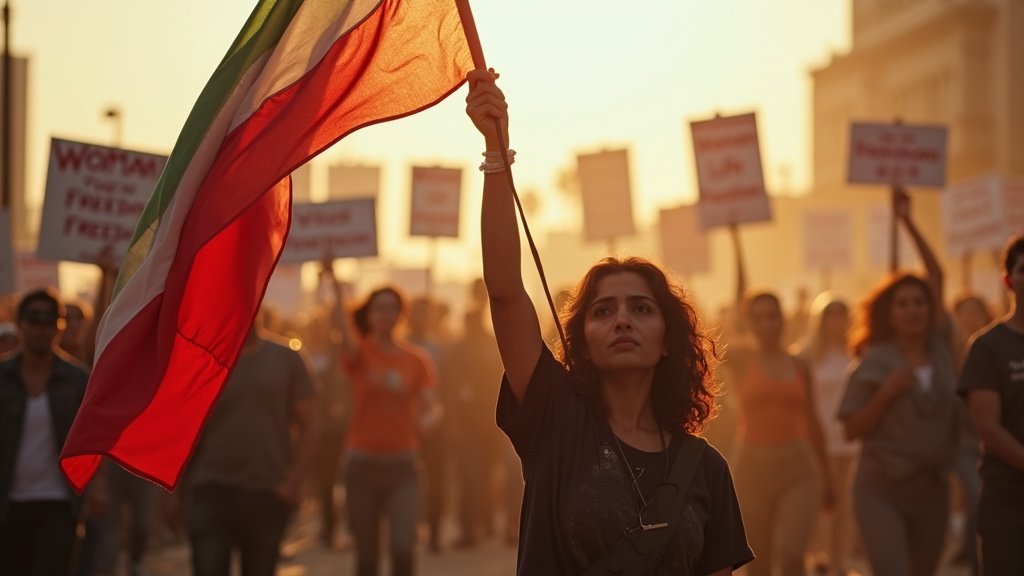LOS ANGELES — Julio César Chávez Jr., the prominent Mexican professional boxer, has been arrested by U.S. Immigration and Customs Enforcement (ICE) agents in Los Angeles and is being processed for deportation.
Federal officials confirmed Chávez Jr.’s arrest took place on Wednesday in Studio City, California. The action initiates an expedited removal process, a measure typically employed for individuals deemed inadmissible or deportable under U.S. immigration law.
Details of the Arrest and Visa Status
According to officials familiar with the case, Chávez Jr. originally entered the United States legally in August 2023, utilizing a B2 tourist visa. This specific visa category permits temporary stays for tourism or visiting purposes. However, his authorized period of stay expired in February 2024.
The arrest comes days after Chávez Jr. participated in a highly publicized boxing match where he lost to internet personality and boxer Jake Paul. That bout occurred on June 28, 2025, at the Honda Center in Anaheim, California. The timing of the arrest relative to the fight adds another layer to the high-profile nature of the immigration enforcement action.
Mexican Warrant and Cartel Allegations
Beyond the visa overstay, the Department of Homeland Security (DHS) has reported that Chávez Jr. is the subject of an active arrest warrant issued in Mexico. The warrant reportedly cites serious charges, specifically accusing him of involvement in “organized crime and trafficking firearms, ammunition, and explosives.”
DHS also alleges that Chávez Jr. is an affiliate of the Sinaloa Cartel, one of Mexico’s most powerful and notorious transnational criminal organizations. This alleged link elevates the significance of his arrest beyond a simple immigration violation, connecting it to broader efforts by U.S. authorities to combat international crime and cartel influence.
Official Response and Policy Context
The arrest and the accompanying allegations drew a strong statement from the Department of Homeland Security.
DHS Assistant Secretary Tricia McLaughlin issued a public comment regarding the case, emphasizing the administration’s stance on enforcing immigration laws and targeting individuals with alleged ties to criminal organizations. McLaughlin’s statement read: “Under President Trump, no one is above the law — including world-famous athletes. Our message to any cartel affiliates in the U.S. is clear: We will find you and you will face consequences. The days of unchecked cartel violence are over.”
This statement aligns with President Trump’s stated immigration and national security priorities, which have included efforts to crack down on undocumented immigration and counter the activities of transnational criminal groups. The Trump administration had previously designated cartels, including the Sinaloa Cartel, as foreign terrorist organizations, signaling an intent to apply stringent measures against them and their perceived associates.
Implications and Next Steps
Chávez Jr.’s processing for expedited removal means he could be swiftly removed from the United States. However, the existence of an active arrest warrant in Mexico for serious offenses like “organized crime and trafficking firearms, ammunition, and explosives” introduces complexity.
It is standard practice for U.S. authorities to coordinate with foreign governments regarding individuals facing charges in their home countries. The specifics of how the Mexican warrant might influence the U.S. deportation process, or whether extradition could be pursued, were not immediately detailed by officials.
The case of Julio César Chávez Jr., the son of legendary boxer Julio César Chávez, underscores the intersection of celebrity, immigration enforcement, and international efforts to combat organized crime. His arrest by ICE in Los Angeles on Wednesday, following his recent bout at the Honda Center in Anaheim on June 28, 2025, and amid serious allegations tied to a Mexican warrant and the Sinaloa Cartel, remains a developing story with potential legal and diplomatic ramifications.





